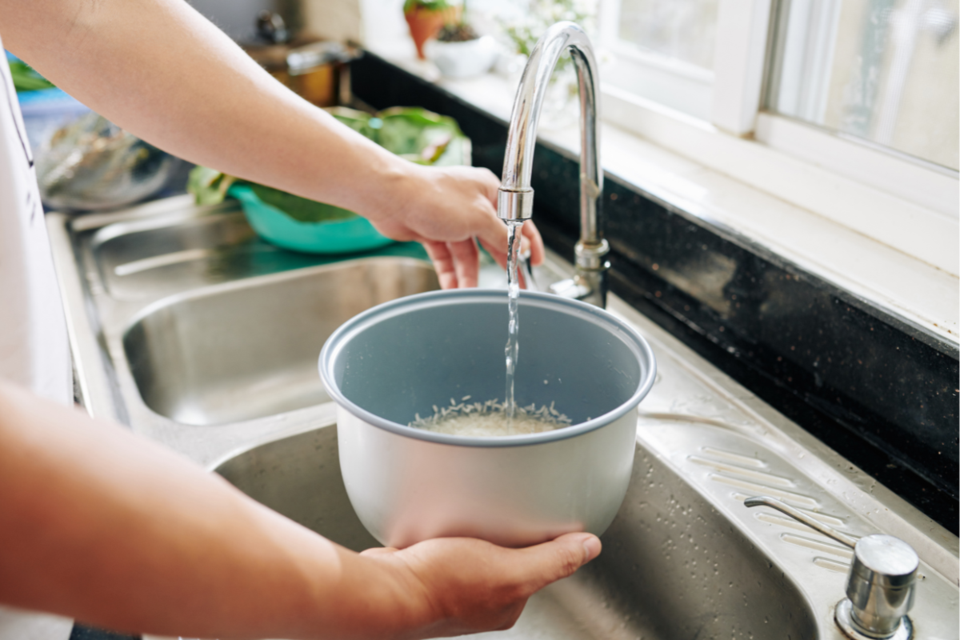Top Stories
Rinsing Rice: The Key to Fluffy Grains or Just a Myth?

The debate over whether to rinse rice before cooking has sparked considerable discussion among culinary enthusiasts. Some chefs advocate for rinsing as a critical step to achieving fluffy, well-separated grains, while others maintain that skipping this process yields equally satisfactory results. Understanding the purpose of rinsing can help cooks make informed decisions based on the type of rice and the desired outcome for their dishes.
Raw rice typically comes coated with surface starches. These starches can lead to clumping or a gummy texture when cooked. Rinsing rice helps eliminate excess starch and any remnants of dust or debris from processing and packaging. This practice is especially important for long-grain varieties such as basmati rice and jasmine rice, where the goal is to achieve light and fluffy grains. In some cultures, rinsing rice is considered essential for both hygiene and flavor.
When Rinsing Matters
Certain rice dishes benefit significantly from rinsing. For recipes like pilaf, fried rice, or biryani, rinsing can dramatically improve the texture, resulting in distinct grains that do not stick together. Additionally, sushi rice requires thorough rinsing, often multiple times, to attain the right balance between stickiness and firmness.
Conversely, there are scenarios where rinsing is not advisable. Dishes such as risotto, paella, or rice pudding require the starch present on the rice. This starch contributes to the creamy texture characteristic of these recipes. In these cases, skipping the rinse allows the natural starch to enhance the dish’s overall quality.
How to Rinse Rice Effectively
If you choose to rinse your rice, doing it correctly will maximize the benefits. A straightforward method involves rinsing the rice under cold water until the water runs mostly clear. This step should only take a few minutes but can significantly affect the final dish if fluffy, non-sticky grains are your aim.
Ultimately, the question of whether to rinse rice before cooking does not have a one-size-fits-all answer. The decision hinges on the specific dish being prepared and the type of rice used. Understanding the desired texture and flavor will inform whether rinsing is necessary. In general, for light and fluffy grains, rinsing is beneficial, whereas for creamy dishes, it may be best to forgo the rinse.
-

 Science3 months ago
Science3 months agoToyoake City Proposes Daily Two-Hour Smartphone Use Limit
-

 Top Stories3 months ago
Top Stories3 months agoPedestrian Fatally Injured in Esquimalt Collision on August 14
-

 Health3 months ago
Health3 months agoB.C. Review Reveals Urgent Need for Rare-Disease Drug Reforms
-

 Technology3 months ago
Technology3 months agoDark Adventure Game “Bye Sweet Carole” Set for October Release
-

 World3 months ago
World3 months agoJimmy Lai’s Defense Challenges Charges Under National Security Law
-

 Lifestyle3 months ago
Lifestyle3 months agoVictoria’s Pop-Up Shop Shines Light on B.C.’s Wolf Cull
-

 Technology3 months ago
Technology3 months agoKonami Revives Iconic Metal Gear Solid Delta Ahead of Release
-

 Technology3 months ago
Technology3 months agoApple Expands Self-Service Repair Program to Canada
-

 Technology3 months ago
Technology3 months agoSnapmaker U1 Color 3D Printer Redefines Speed and Sustainability
-

 Technology3 months ago
Technology3 months agoAION Folding Knife: Redefining EDC Design with Premium Materials
-

 Business3 months ago
Business3 months agoGordon Murray Automotive Unveils S1 LM and Le Mans GTR at Monterey
-

 Technology3 months ago
Technology3 months agoSolve Today’s Wordle Challenge: Hints and Answer for August 19









